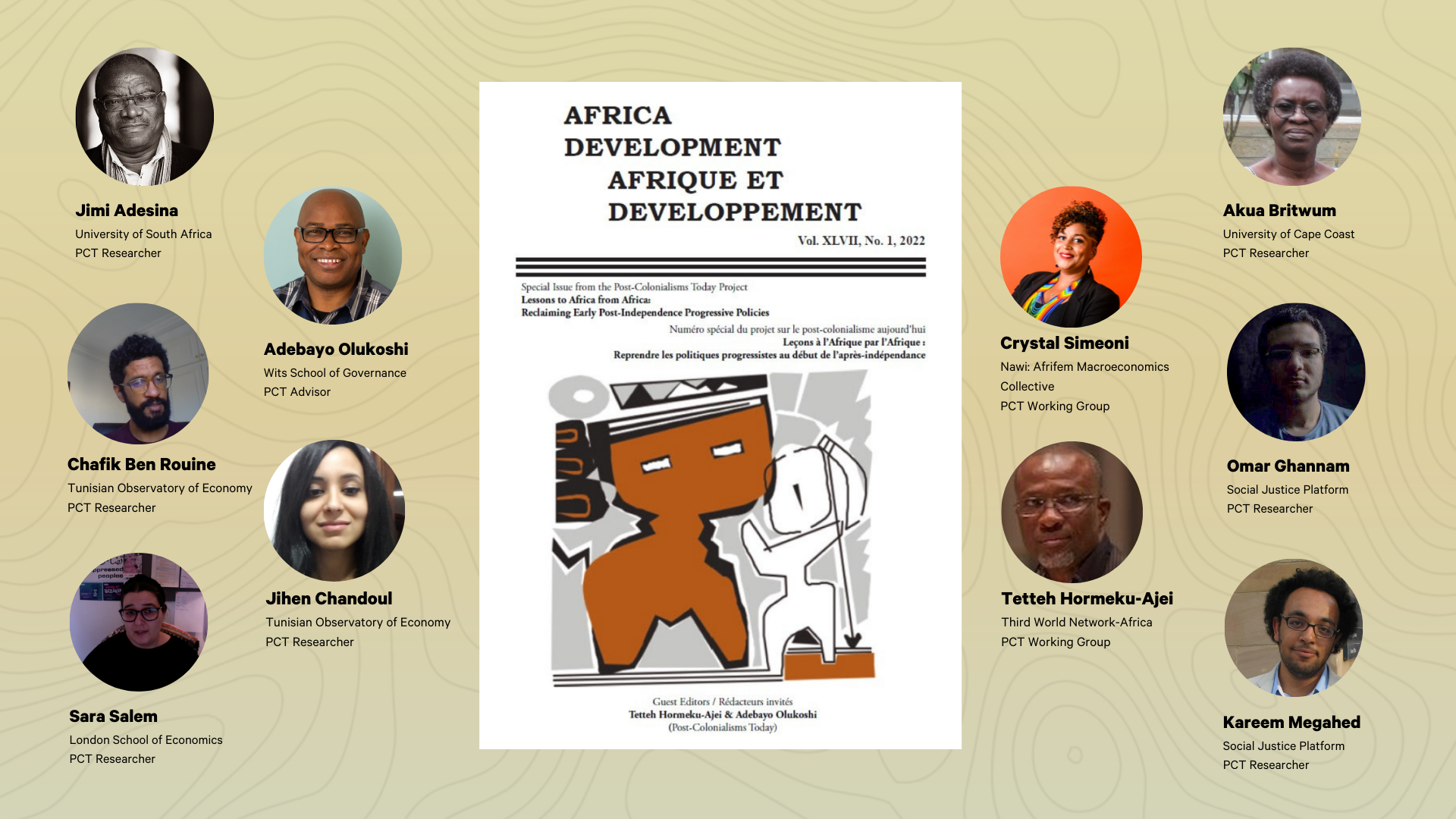A two-day virtual event launched Lessons to Africa from Africa: Reclaiming Early Post-Independence Progressive Policies, a new collection recovering insights from the revolutionary governments of early post-independence Africa to confront today’s development challenges. Published as a special issue of CODESRIA’s Africa Development journal, this research comes from Post-Colonialisms Today, a collective undertaking of African activist-intellectuals with Regions Refocus serving as project secretariat.
Day 2: Collective Reading Group
One week after the publication launch, the virtual reading group brought the Post-Colonialisms Today community together in conversation with the wider public to collectively unpack Lessons to Africa from Africa: Reclaiming Early Post-Independence Progressive Policies. After a multi-year research and publishing journey, the project working group, advisors, and authors relished the opportunity to engage in lively discussions with activists, policymakers, and academics around their findings.
Chaired by working group member Crystal Simeoni (Nawi: Afrifem Macroeconomics Collective), the day began with opening remarks from project advisor Adebayo Olokushi (Wits School of Governance), who outlined the politics and thinking of early nationalists like Kwame Nkrumah, Julius Nyerere, Gamal Abdel Nasser, and more, which acted as a starting point for the research collection to imagine more just and equitable alternatives to neoliberalism.
The opening remarks were followed by three parallel discussion groups, each anchored by two authors and a discussant. With simultaneous interpretation into French, we aimed to include a wide community of participants.
- Akua O. Britwum (University of Cape Coast) and Chafik Ben Rouine (Tunisian Observatory of Economy), joined by Jihen Chandoul (Tunisian Observatory of Economy), discussed the role of the state in planning and financing economic development in early post-independence Africa, fielding questions around the inclusion of women’s economic interests and the dynamics hindering these development processes today.
- Kareem Megahed (Social Justice Platform,) and Omar Ghannam (Social Justice Platform,), joined by Tetteh Hormeku-Ajei (Third World Network-Africa), answered questions around the different strategies for industrial development available to African states and the role of agriculture in generating domestic resources to finance industrialisation, and how early post-independence experiences can be reimagined for today.
- Jimi Adesina University of South Africa) and Sara Salem (London School of Economics), joined by Adebayo Olukoshi (Wits School of Governance), discussed the radical expressions that framed Africa’s development in the early post-independence era—including ideology, epistemology, pan-Africanism, and feminism—and fielded questions around how these attempts to rupture from colonialism can inform our actions today.
In their concluding remarks, working group members Adebayo Olukoshi, Tetteh Hormeku-Ajei, and Jihen Chandoul emphasised that the launch of Lessons to Africa from Africa is not just the conclusion of a multi-year research process, but also the starting-point of a process of advocacy and community building.









